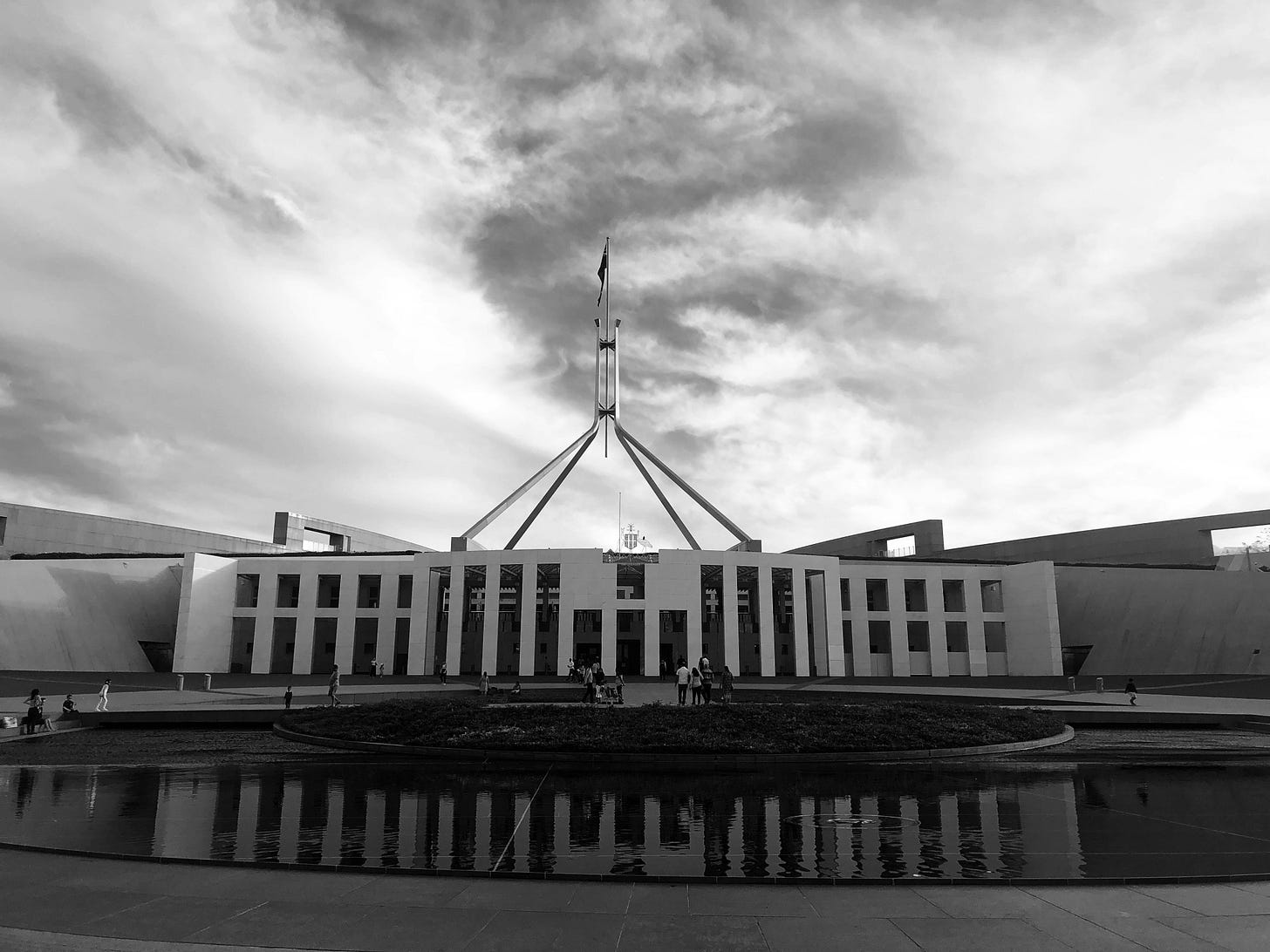A Sense Of Independents
A mindboggling array of independent candidates are competing for votes in the Australian federal election. Only some are strong on climate.

A wave of independent candidates up for election next Saturday could unlock genuine progress on climate policy in Australia.
Building on the unprecedented success of climate-conscious independents elected in 2022, the 2025 crop could do even better, even serving as kingmakers for a minority government. Among the independent challengers seeking to secure a seat are:
Environmental campaigner Ellie Smith, who is aiming to take down Opposition Leader Peter Dutton in the Queensland seat of Dickson;
Fracking critic Phil Scott, who is challenging for the Darwin seat of Solomon, held by Labor MP Luke Gosling (who has been accused of failing to stand up against the Middle Arm gas hub);
Independent Jenny Rolfe, who is bidding to unseat former Nationals leader Michael McCormack (a man who once advised Pacific Islanders to survive climate change by becoming fruit pickers in Australia) in the regional NSW seat of Riverina;
Eco campaigner Peter George, who is seeking to topple the agriculture minister, Julie Collins, in the Tasmanian seat of Franklin;
There are plenty more independent candidates with significantly stronger climate plans than the two major parties, who are both being bird-dogged by activists for their fossil fuel-friendly platforms.
However, just because someone running as an independent, it isn’t a guarantee they are strong on climate. Here are a few examples of independents who are about as climate-friendly as a leaking gas pipe:
In the Western Sydney seat of McMahon, independent Matthew Camenzuli (backed by dodgy polling) is railing against renewables and vowing to get rid of petrol taxes in his challenge against Climate Minister Chris Bowen;
After quitting the Liberals, Queensland Senator Gerard Rennick is running for reelection on a platform of new government-funded coal stations and quitting the Paris Agreement;
In Victoria, independent Member for Monash Russell Broadbent, another ex-Liberal, has declared climate science “far from settled” and warned of an “obsession over carbon emissions”;
Independent candidate for Richmond in Northern NSW, Kevin Loughrey, has done his “own research” and warns the world is facing a "Grand Solar Minimum" that will result in dangerous “global cooling”.
So, when deciding who to vote for, how do you sort the “does their own research” independent from the ones who actually believe in climate science?
Check the candidate’s website for a rundown on their climate and energy policies, or see how a climate-friendly party like the Greens preference them in your seat;
The Australian Conservation Foundation has released a scorecard assessing many of the most prominent independents;
The most straightforward bet is a candidate backed by the resources of the Climate 200 movement, which likely means an independent not only with good climate policies, but with the resources to be competitive;
The ACF has for instance given poor marks to the independent MP for Calare, Andrew Gee, while Climate 200 is backing another independent in Kate Hook to topple him.
Whether in the lower house or in the senate, every Australian’s vote is potentially critical at this election. So if you do decide to cast a ballot for a candidate not aligned with a party, be sure to find out whether their policies are independent of fossil fuel interests — or simply independent of reason.





Very sensible advice Max - when there are fruitloops like Gerard Rennick out there you really do need to sort your independent sheep from your independent goats!
Of course, I still find it is generally simpler, safer and more effective to vote 1 for the Greens and then 2 for a good independent, if there is one running.
Rennick alone was enough of a reason to write this article... and yes, your approach does sound sensible, Felix.